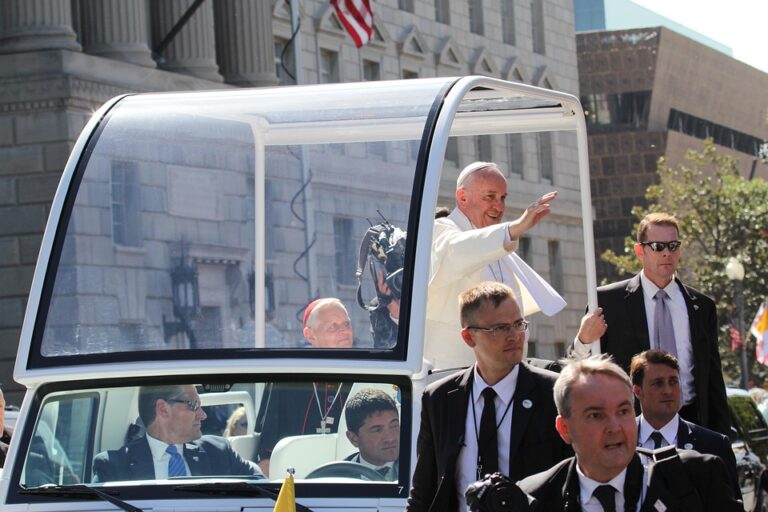Pope Francis Admitted to Hospital for Bronchitis Treatment
In a significant development on the global stage, Pope Francis has been admitted to the hospital for treatment of bronchitis. This unexpected turn of events has raised concerns among his followers and the broader Catholic community. The 86-year-old pontiff was hospitalized in mid-March 2024, marking yet another chapter in a life marked by health challenges. The Vatican reported that the Pope is undergoing treatment and is expected to remain in the hospital for a few days.

Bronchitis, an inflammation of the lining of the bronchial tubes, can often result in a persistent cough and discomfort in the chest. While commonly treatable, it can be particularly concerning for elderly individuals. The Pope’s age, coupled with previous health issues, notably raises the stakes for his condition. Pope Francis underwent colon surgery in July 2021, which required a recovery period that kept him away from some public engagements.
According to the World Health Organization (WHO), respiratory diseases account for approximately 4 million deaths each year, with bronchitis being a significant contributor. The fact that Pope Francis is battling bronchitis underscores the importance of health monitoring, particularly in older adults. Health experts often emphasize that bronchitis can lead to more severe respiratory issues if not managed properly.

Pope Francis’s health has periodically been a topic of discussion within the Catholic community. His commitment to various humanitarian efforts, including advocating for climate action and refugee support, has taken a toll on his health. In a world where over 1.3 billion Catholics are spread across the globe, the Pope is seen as a spiritual leader who stands for peace, justice, and compassion. Therefore, news of his hospitalization prompts not only concern but also a wave of prayers and support from millions.
The Vatican, which has always prioritized the Pope’s health, reassured the public that he is responding well to the treatment. There is a rich historical precedent for papal health crises: Pope John Paul II faced significant health battles, including an assassination attempt and a long struggle with Parkinson’s disease. His resilience won the hearts of many but also highlighted the vulnerabilities of the papacy.

Pope Francis, known for his approachable demeanor and focus on social issues, has been a significant figure in modern-day Catholicism. He was the first Pope from the Southern Hemisphere and is also the first Jesuit Pope. His encyclicals, such as Laudato Si’, reflect his dedication to environmental issues, while his homilies often emphasize love and compassion for others. The Pope’s potential recovery will be closely monitored, considering the challenges of his age and responsibilities.
Catholic leaders and followers are reminded of a notable statistic: nearly 50% of people over 65 suffer from at least one chronic respiratory ailment. Thus, the importance of focusing on health, particularly concerning public figures like the Pope, becomes paramount. Experts advocate for regular health screenings and a focus on respiratory health, especially in the context of increasing global pollution and health warnings related to respiratory diseases.
As Pope Francis remains hospitalized for treatment, messages of support have flooded social media and church bulletins worldwide. Following the announcement of his admission, prominent religious leaders, including Cardinals and Archbishops, took to their platforms, urging prayer vigils to support the Pope’s health. The unity displayed among the global Catholic community in times of distress demonstrates the collective strength of belief and hope.

Looking forward, the Vatican is expected to provide updates on the Pope’s condition. The heads of various Catholic dioceses around the globe have been urged to keep their communities informed and engaged, highlighting the importance of prayer in times of uncertainty. While the Pope’s health remains a concern, it also serves to remind us of the fragility of life, even for someone who represents durability and hope for millions.
In conclusion, Pope Francis’s hospitalization due to bronchitis reminds us of the vulnerabilities that come with age and the significance of health within the leadership of the Catholic Church. As the world watches closely, many are hopeful for a swift recovery, allowing him to continue his unprecedented approach to papal duties—shaping the Catholic Church and providing hope and inspiration to the faithful.
For further updates, stay tuned to reliable sources as they report on this developing story. Your thoughts and prayers for the Pope will undoubtedly resonate with thousands of others around the globe who look up to him for guidance and inspiration.


